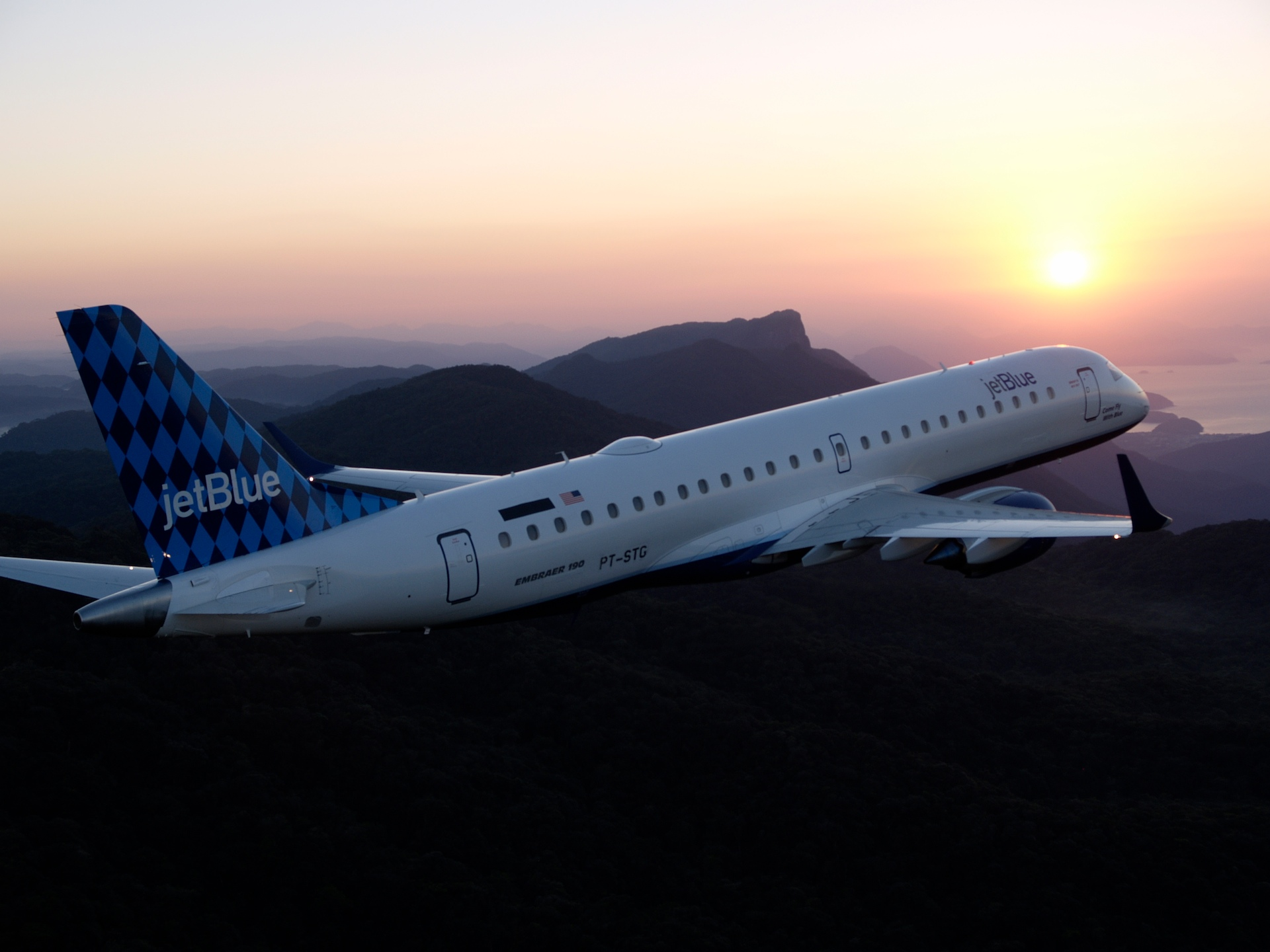
In a move that was widely anticipated, JetBlue this week abandoned its policy of one free checked bag. Now, JetBlue travelers will have to pay at least $15 for a first checked bag. The new policy is actually part of a completely new fare structure, in which the airline will offer four different fare levels:
- Blue, a basic bare-bones fare that allows only one carry-on bag and one personal item. Change fees depend on ticket price, ranging from $70 on fares up to $99 to $135 on fares of $149 or over; same-day changes cost $50. Blue fares earn three points per dollar plus another three points for online booking at JetBlue.com.
- Blue Plus is almost the same, except you get one checked bag at no additional charge. Blue Plus also earns an extra point per dollar for online booking, and ticket change fees are $10 to $15 lower than Blue. Blue Plus costs $15 more each way than Blue.
- Blue Flex includes two no-additional-charge checked bags, no ticket change fees, admission to an expedited security line where available, and still another point for online booking. Blue Plus adds $100 to Blue.
- Mint, JetBlue’s premium long-haul service, includes lie-flat seats and other premium options to compete with the giant airlines’ transcon services. Fares are almost triple Blue fares on transcon flights.
JetBlue is also adding extra seats, which will ultimately devalue its vaunted “most legroom in coach” product. But the airline says that even after the change, it will still have more legroom than the base product of any other domestic line.
Industry mavens seem unanimous in their view that JetBlue’s move is in response to pressure from Wall Street.
“You’ve been too good to your customers and not good enough to your stockholders,” seems to be the mantra. They see those billions of dollars the giant airlines rake in from baggage fees and think JetBlue can strike gold by tapping that lucrative cash flow, too.
The question arises, however, whether degrading the product will wind up with negative rather than positive results. JetBlue’s popularity has been based, to a large extent, on its policy of offering the measurably best economy product of any domestic airline. Degrading that product could cause a drop in market share.
I’m pretty sure that Southwest has carefully studied its “two bags free” and “no change fee” policies and concluded that it would lose more revenue—from lost customers—than it would gain by adding fees. JetBlue has apparently come to a different conclusion.
In any event, my guidance here boils down to a few key suggestions:
- Travelers on Blue tickets pay $20 to $25 to check a bag, so if you want to check a bag, paying $15 extra for Blue Plus is a no-brainer.
- If you are likely to want to change a ticket, Blue Flex is a better deal than an unrestricted ticket on the giant airlines.
Even after the degradation, JetBlue’s economy product will still be better than any other airline’s economy product. And its new fees are still less than those charged by all of its major competitors other than Southwest.
You Might Also Like:
- 11 Must-Haves for Your Carry-on Bag
- 10 Things You Should Never Pack in Your Checked Bag
- 7 Ways to Get a Free Upgrade
We hand-pick everything we recommend and select items through testing and reviews. Some products are sent to us free of charge with no incentive to offer a favorable review. We offer our unbiased opinions and do not accept compensation to review products. All items are in stock and prices are accurate at the time of publication. If you buy something through our links, we may earn a commission.
Related
Top Fares From
Today's Top Travel Deals
Brought to you by ShermansTravel
Greece: 9-Night Vacation, Incl. Meteora &...
Exoticca
 vacation
$2099+
vacation
$2099+
New Year Sale: Luxe, 9-Nt Alaska...
Oceania Cruises
 cruise
$3599+
cruise
$3599+
Ohio: Daily Car Rentals from Cincinnati
85OFF.com
 Car Rental
$19+
Car Rental
$19+



